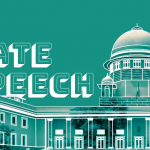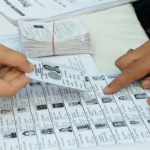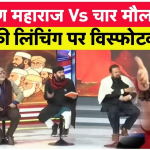FE Exclusive | “Have always believed in parity, equity and non-discrimination”: Teesta Setalvad Financial Express
12, Sep 2022 | Sayan Ganguly
Speaking to Financial Express Online, Setalvad says despite the highs and lows, her faith in the Indian judiciary remains uncompromised.

Going forward, Teesta Setalvad hopes to secure permanent bail and take up issues like prison reforms, access to justice and bail for undertrials, besides the human rights causes that she continues to work on. (File Image/Express Photo)
“You have to be in judicial custody to understand what it means for freedom to be taken away,” says Teesta Setalvad, in an exclusive conversation with Financial Express Online. A week since the Supreme Court granted her interim bail in a case of alleged criminal conspiracy and forgery pertaining to the 2002 Gujarat riots. the activist says she is in “great spirits” despite what she claims was a “forced and unjust confinement” that led to “loss of dignity.”
Setalvad was arrested by the Gujarat Anti-Terrorist Squad (ATS) on June 25, a day after the Supreme Court dismissed a petition by Zakia Jafri challenging the SIT’s clean chit given to then Gujarat Chief Minister Narendra Modi during the communal riots in Gujarat. On September 2, Chief Justice of India (CJI) UU Lalit-led bench ordered interim bail for Setalvad, stating that no chargesheet had been filed even after two months of jail time. The top court also pulled up the Gujarat High Court for adjourning Setalvad’s bail plea for six weeks.
Speaking to Financial Express Online, Setalvad says despite the highs and lows, her faith in the Indian judiciary remains uncompromised. Going forward, she hopes to secure permanent bail and take up issues like prison reforms, access to justice and bail for undertrials, besides the human rights causes that she continues to work on.
What would you say about the manner of your arrest?
Whatever I had to say about my manner of arrest has been said in my complaint to the jurisdictional police station on June 25, when they took me away violently. I insisted that my statement be given to the local police station where I live. That is my stand and that is what I will pursue.
After witnessing several highs and lows in connection with your case, what is your stand on India’s judiciary? Do you have faith in our legal system?
As a broader institution I continue to have faith in the judiciary. Any institution will have its highs and lows, but I think if I didn’t have faith in the judiciary, I wouldn’t be able to continue my struggle.
I was inside the Sabarmati jail when the July 11 Supreme Court judgement (emphasis of “bail over jail”) came — bail should always be the norm and jail should be an exception. When this news trickled down, there was such a sense of hope among the other inmates, who were incarcerated for years in the Sabarmati Women’s Jail. Such judgments should percolate down to the lowest level. There are nearly 4 lakh undertrial prisoners in India, who have been languishing in jail for years without trial, hoping to see the light of justice one day.
Can you tell us more about your work and your struggle, for which you have been in the dock?
Whether it’s my individual battle or the battle that my organisation has been taking up, we have always believed in the principles of parity, equity and non-discrimination enshrined in our Constitution. Our entire fight for justice is based on the belief that the system would give a fair hearing and those who don’t have any access to justice will eventually be heard. Not just since 2002 Gujarat riots but from 1992 onwards, we spoke up for the victims of the Mumbai communal violence and the Kashmiri Pandits. We firmly stood by the Godhra train victims as much as the victims in the post-Godhra massacre. When there are targeted killings of a particular section based on any particular ethnography, be it caste, religion or gender, then, that is something we have treated as a priority, be it assisting them legally or their access to justice.
Will your struggle against communal violence still continue?
I believe I am not an individual but a small part of a wider battle where there are many other organisations and activists involved across the country. Though there are many setbacks which the state will try to put on you (this was certainly one of them), I don’t think the setback itself can put back a struggle.
When I was incarcerated in jail for 63 days and seven days before that in police remand, my major point of strength was the fact that from the 25th of July, I started getting dozens of letters and postcards every week. I got around 4000 letters and postcards. These came from all over the country — from my adivasi brothers and sisters whom we work with. They came from my minority brothers and sisters, from friends and relatives. They were a huge source of strength at a time when you’re feeling isolated and cut-off, which is one of the bitter experiences in jail.
How has this whole experience inside the prison changed you as a person?
A lot of humility seeps in. The library was a source of sanity and refuge from all the noise, shouting and abuse in jail. I used to hunt out these quieter places. I, also, urge my fellow citizens, who are concerned about the state of India’s democracy and keen on holding our institutions accountable, that we need to turn our eyes towards the issue of prison reforms, towards conditions inside prisons. Two-thirds of prison inmates are undertrials with a waiting period of 4 to 10 years. That is something a forward looking democracy can’t afford. Collectively, we need to focus on several aspects — whether there are basic amenities like clean drinking water and telephone among others, do the undertrials have access to legal aid and justice, if they are getting bail on time. Do you know out-of-state prisoners don’t have access to physical meetings?
Do you have any message for the Narendra Modi government?
I want to address the institution of democracy in this country, i.e. the state, and say that Aug 15, 2022 was our 75th year of Indian independence. We were excited to hear about the Amrit Mahostsav celebrations through the radio and it made us very happy and proud. However, all of the women undertrials in the Sabarmati Mahila Jail were really sad as there was no flag hoisting there. We were looking for at least something on Independence Day in our jail. Unfortunately, it was not there. Two days later when we saw that convicts in the Bilkis Bano case were given remission, there was a lot of anguish. In our jail, there were at least 17 women convicts who had served between 14 to 27 years, who had made remissions and mercy petitions, and were expecting to be released. And they were not released. So, they felt that this unfortunate political act leaves them completely bereft. That was a huge disappointment and a moment of sadness for all of us.
What next for Teesta Setalvad?
I am hoping to secure permanent bail. Apart from the other human rights work I am doing, I want to take up issues like prison reforms, access to justice and bail for undertrials.
The original piece may be read here











